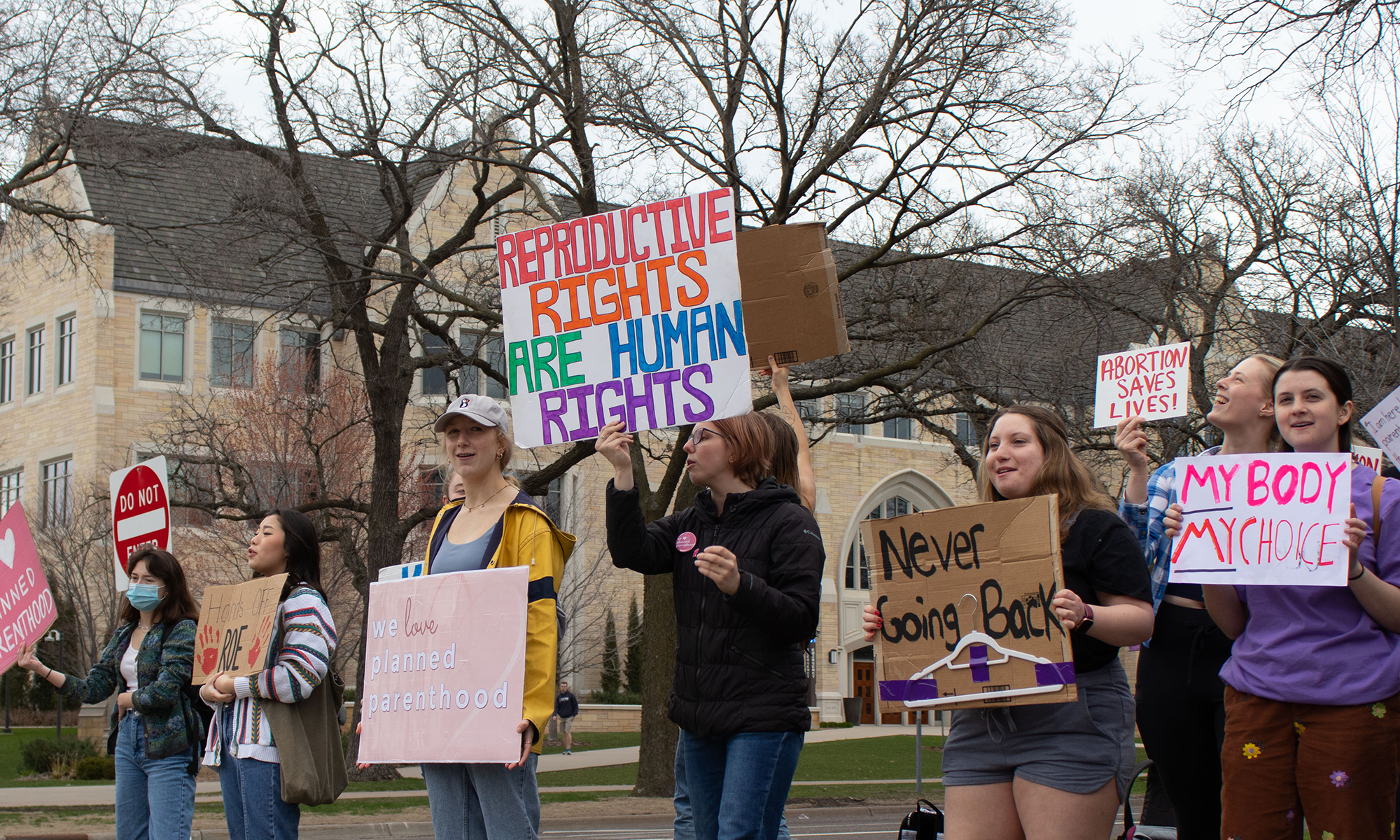St. Thomas students gathered at Summit and Cretin avenues Thursday to protest a leaked Supreme Court draft majority opinion written by Justice Samuel Alito that would overturn Roe v. Wade, the 1973 landmark case that established a women’s ability to choose to have an abortion as a constitutional right.
Protests have taken the country by storm, including in front of the Minnesota Capitol Building, over the draft opinion written for the Dobb’s v. Jackson Women’s Health Organization case that was leaked on May 2; thousands have demanded that state governments take more proactive steps to protect reproductive rights.
“I think that a lot of states are threatening reproductive rights,” junior Amelia Reed said. “A lot of people think about Texas or other southern states, but this is happening all over the United States, including here in the Midwest.”
Twenty-three states would ban abortion if Roe v. Wade is overturned, with 13 states having so-called trigger laws in place that would immediately ban abortion if the opinion by Alito stands. With many surrounding states, including the Dakotas and Iowa, possibly banning abortions, Minnesota could become a hotspot for safe and legal abortions.
Minnesota currently does not have any laws protecting abortion as a right, but the state does not have a ban. Minnesota Gov. Tim Walz said access to abortion will not be impeded while he is governor.
“When this goes through we are a fundamentally different country,” Walz said. “But let me make this clear, whoever sits in this office, as I have the privilege to do right now, will make that decision. My statement is very clear: Not on my watch.”
Nearly 500 people took to Minneapolis streets the day after the draft opinion to demand that the Minnesota legislature codify Roe v. Wade into state law.
“My biggest concern is that people who need access to reproductive healthcare are going to get into dangerous situations in order to get that healthcare,” Reed said. “I am also concerned that it won’t stop there. I worry about other reproductive rights.”
Roe v. Wade established that the 9th and 14th Amendments of the Constitution were “broad enough to encompass a woman’s decision whether to terminate her pregnancy.” The court reasoned that outlawing abortions “may force upon the woman a distressful life and future,” and that there may be “distress, for all concerned, associated with the unwanted child.”
Now, Alito writes that “Roe was egregiously wrong from the start.”
“I think that overturning Roe v. Wade would disproportionately affect those who are vulnerable,” Reed said.
College Republicans President David Povolny challenged the pro-choice protesters, arguing that Roe v. Wade violates the 10th Amendment, which states, “the powers not delegated to the United States by the Constitution, nor prohibited by it to the States, are reserved to the States respectively, or to the people.”
“We must give (the issue of) abortion to the states. If we want to vote here to have abortion legal in Minnesota, fine. But Roe v. Wade is not the way to do it,” Povolny said.
A heated debate between Povolny and another student, Sam Twardy, took place at the protest. Twardy believes that abortion should be codified into the Constitution but Povolny disagreed and said that the decision should remain within state legislatures.
The Supreme Court confirmed the leaked document is real, but Chief Justice John Roberts has said that it does not represent a final decision by the court. The U.S. Senate is expected to vote on codifying abortion rights into law next week.
Elijah Todd-Walden can be reached at todd5861@stthomas.edu





